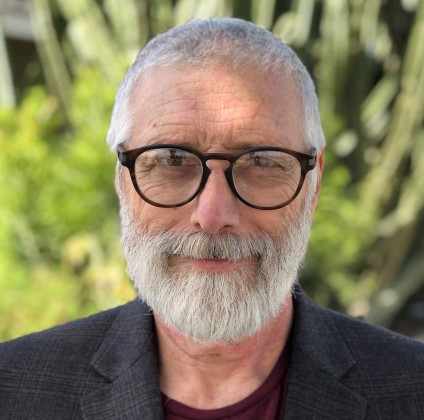University of Redlands Emergency Alert System
Alert Received: . For more information, visit: https://www.redlands.edu/alert/

Ph.D., Botany and Plant Pathology, Michigan State University, 1987;
M.S., Botany and Plant Pathology, Michigan State University, 1984;
B.A., Botany, Rutgers University, 1981
Vertebrate anatomy and evolution, microbiology, exercise physiology, the historical development of biological thought, and developing interdisciplinary courses.
Research has included work in fungal biology, molecular genetics, biological control of plant diseases, natural products chemistry, and immunochemistry.
Research in fungal biology and ecology was conducted to determine the effects of pesticides and environmental factors on development of the fungus, Sclerotinia sclerotiorum. This work showed that triazine herbicides were teratogenic, interfering with normal fungal development and spore production.
Basic and applied research on mycotoxins (fungal toxins occurring in food and animal feed) included fermentations, chemical extractions, purifications, and analysis of aflatoxins and trichothecene mycotoxins. Synthesis of mycotoxin analogs and protein conjugates to elicit antibodies with various specificities to mycotoxins, all phases of polyclonal and monoclonal antibody production, and immunoassay optimization contributed to the development of commercially marketed serological assay kits to detect mycotoxins in food and animal feed at 10-100 times lower concentrations than previous methods. In vivo and in vitro experiments demonstrated inhibition of protein synthesis in plants by trichothecene mycotoxins.
Research in molecular genetics included studies on developmental gene regulation in the fungus, Mucor racemosus, as a model system for developmental gene regulation. Gene sequencing and expression experiments indicated distinct roles for each of three fungal genes with homology to human ras oncogenes in growth and development of M. racemosus.
Development of biocontrol of Phytophthora root rot of avocado included isolation and evaluation potential microbial agents and the use of recycled organic wastes as substrates for delivery of biocontrol agents. A related project identified a siderophore (iron-chelating compound) produced by the fungus, Trichoderma and investigated its role in microbial ecology.
Microbiology, Cell Biology, Vertebrate Anatomy, Human Anatomy, Plant Science, Biology of Exercise and Athletic Performance, Concepts of Biology, The Nature of Life, Form and Structure in Biology.